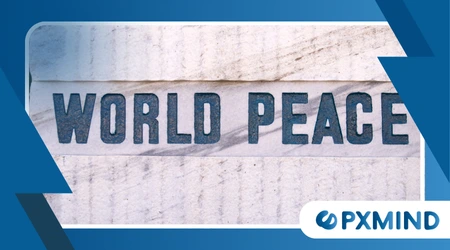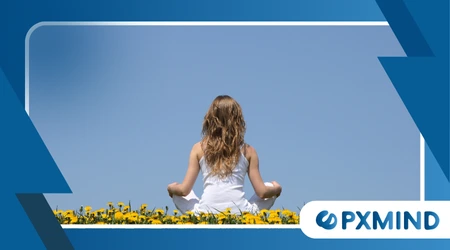How to Protect Your Peace in a Noisy World

protect your peace. In our hyper-connected 2025, learning to protect your peace is no longer a luxury—it’s a survival skill.
Anúncios
The relentless hum of notifications, the constant influx of information, and the pervasive pressure to “do more” can chip away at our well-being.
But what if we could reclaim our inner sanctuary, even amidst the chaos?
Digital Distractions: The Siren Song of the Screen
Smartphones, once tools of convenience, have become major peace disruptors. The urge to check, scroll, and respond is almost instinctual now.
This digital tether keeps us constantly on edge, making genuine moments of quiet reflection rare. We must acknowledge the subtle ways these devices dictate our focus.
The Echo Chamber of Opinions and Information
News cycles are relentless, and social media amplifies every viewpoint. We’re bombarded with opinions, often polarizing, that can trigger emotional responses.
Read more: Small Habits That Make a Big Difference in Mental Health
Distinguishing fact from noise becomes a daily challenge, creating mental fatigue. It’s crucial to filter what we consume intentionally.
The Pressure Cooker of Productivity
The “hustle culture” pervades our professional and personal lives. There’s an unspoken expectation to be constantly productive, always available, and perpetually striving.
This relentless drive leaves little room for rest or contemplation. We often confuse busyness with genuine achievement.
Cultivating Your Inner Sanctuary: Practical Strategies
Protect your peace through deliberate actions. It requires more than just wishing for calm; it demands intentional practice.
These strategies offer tangible ways to build a fortress around your serenity.

Digital Detoxes: Unplugging to Reconnect
Regularly scheduled digital breaks are essential. This isn’t about abandoning technology entirely but creating boundaries.
Start small: an hour without your phone, a day free from social media. These pauses allow your mind to truly rest and wander.
++ How Meditation Can Transform Your Brain and Reduce Stress
You might discover forgotten hobbies or simply enjoy the present moment.
Mindful Consumption: Choosing Your Inputs Wisely
Just as we curate our diets, we must curate our mental diets. Be selective about the news you consume and the social media accounts you follow.
Prioritize sources that inform rather than inflame. Consider limiting news consumption to specific times of the day.
The Power of Boundaries: Saying “No” with Conviction
Setting firm boundaries is a powerful act of self-preservation. This applies to work, relationships, and personal commitments.
Saying “no” to an extra task or a social obligation can feel uncomfortable initially. However, it creates space for what truly matters to your well-being. Your time and energy are finite resources.
The Anchor of Routine: Creating Predictable Calm
Establishing consistent daily routines can provide a sense of stability. This could involve a morning ritual of meditation, a specific time for exercise, or an evening wind-down routine.
Predictability reduces mental load and fosters a sense of control. Small rituals can become significant pillars of peace.
Embracing Solitude: The Art of Being Alone
In a world that constantly pushes for connection, valuing solitude is revolutionary. Schedule time for yourself, free from distractions and demands.
Use this time for introspection, creative pursuits, or simply quiet reflection. Solitude is not loneliness; it is an opportunity for profound self-discovery.
Redefining Connection in a Noisy World
While external noise can disrupt us, genuine human connection can nourish our peace. The key is to distinguish between superficial interactions and meaningful relationships.
Deep Conversations Over Digital Chatter
Prioritize face-to-face interactions or genuine phone calls over endless text exchanges. Engage in deep, meaningful conversations that foster understanding and empathy.
True connection enriches your spirit, unlike the fleeting satisfaction of a “like.”
Curating Your Inner Circle
Surround yourself with people who uplift and inspire you. Limit exposure to individuals who drain your energy or bring negativity into your life.
Your social environment significantly impacts your emotional landscape. Choose wisely who you let into your personal space.

The Role of Self-Compassion in Maintaining Peace
Being kind to yourself is paramount in this journey. The pursuit of peace isn’t about achieving perfection; it’s about consistent effort and gentle redirection.
Acknowledging Imperfection
It’s okay to have off days, to feel overwhelmed, or to momentarily lose your calm. Self-compassion means recognizing these moments without judgment.
Treat yourself with the same kindness you would offer a friend. Perfection is an illusion; progress is real.
Your Mind as a Garden
Consider your mind as a beautiful garden . Just as a gardener meticulously removes weeds to allow flowers to flourish, you must tend to your mental space.
The “weeds” are the constant noise, the negative thoughts, and the unnecessary distractions. To protect your peace, you must regularly prune these away, making space for tranquility and growth.
Read here: Mindhacks to Improve Your Memory for Good
If you let the weeds overtake the garden, the flowers will wither. Similarly, if you let external noise overwhelm your mind, your inner peace will diminish.
This consistent tending is a lifelong process, not a one-time event.
protect your peace
Consider Maria, a marketing executive who found herself constantly checking emails, even on weekends. The pressure to respond immediately became unbearable. She started implementing “email-free” weekends, leaving her work phone in a drawer from Friday evening until Monday morning.
Initially, she felt anxious, but soon, the freedom from constant alerts allowed her to fully engage with her family and hobbies, significantly reducing her stress levels.
This small change profoundly impacted her overall well-being.
Another example is João, a university student overwhelmed by the sheer volume of news and social media discussions around global events.
He decided to dedicate only 30 minutes each morning to reading curated news summaries from reputable sources, avoiding endless scrolling throughout the day.
He also unfollowed accounts that consistently posted sensational or overly negative content.
This focused approach allowed him to stay informed without becoming emotionally exhausted, helping him to protect your peace.
Statistical Insights into Well-being
It’s worth noting the growing awareness of these issues.
A 2024 report by the World Health Organization highlighted that global rates of anxiety and depression, while showing some fluctuations post-pandemic.
Remain significantly higher than pre-2020 levels, with digital overload and constant connectivity cited as contributing factors for many individuals.
This reinforces the urgent need for strategies to safeguard our mental well-being in a perpetually connected world.
A Lifelong Journey
Protect your peace isn’t a destination; it’s an ongoing practice. In a world that will only continue to accelerate, our ability to cultivate inner calm will be our greatest asset.
It requires intentionality, discipline, and a deep commitment to our well-being. What small step will you take today to reclaim your quiet?
Frequently Asked Questions
Q1: Is it possible to completely eliminate noise from my life?
Complete elimination of all noise is often unrealistic.
The goal is to manage and minimize the impact of external noise on your inner state. It’s about building resilience and creating pockets of calm, not living in a bubble.
Q2: How can I deal with noise I can’t control, like a loud neighbor?
For uncontrollable noise, focus on your reaction and mitigation.
Noise-canceling headphones, white noise machines, or even moving your workspace to a quieter part of your home can help.
Sometimes, simply acknowledging the noise without letting it trigger frustration can make a difference.
Q3: Will setting boundaries make me seem unapproachable or difficult?
Initially, some people might react to your new boundaries. However, healthy boundaries are a sign of self-respect.
Those who genuinely care about you will understand and respect your need for space and well-being. It’s about clear, respectful communication.
Q4: How quickly can I expect to feel the benefits of these strategies?
The timeline varies for everyone. Some strategies, like a digital detox, might offer immediate relief. Others, like building consistent routines, require time and repetition to solidify. Be patient and consistent, and you’ll gradually notice positive shifts in your peace of mind.
Q5: What if I feel overwhelmed trying to implement all these changes at once?
Don’t try to do everything at once. Choose one or two strategies that resonate most with you and focus on incorporating them into your life.
Once those feel natural, gradually introduce others. Small, consistent steps lead to lasting change.
++ Protect Your Peace: Nine Unapologetic Principles for Thriving in a Chaotic World
